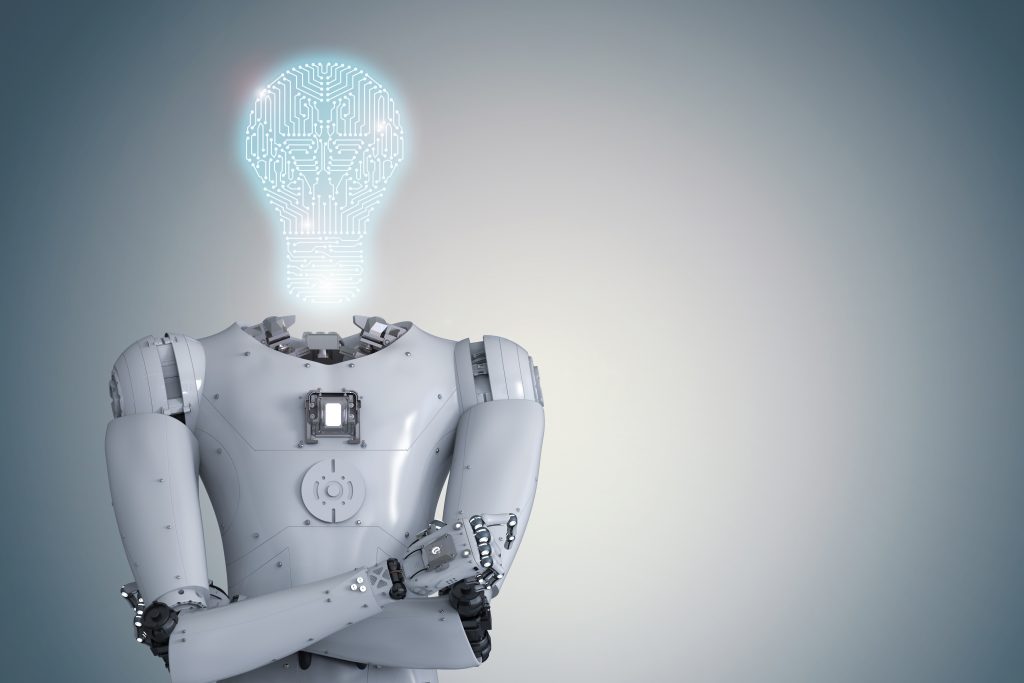“If upheld, the German decision may resolve [the AI as inventor] quandary, as it enables a human to be named as the deemed inventor while also recognizing the creative contribution of the AI.”
 Germany’s Federal Patent Court has set aside a decision of the country’s Patent and Trademark Office (DPMA) that refused a patent application naming an artificial intelligence (AI) as the inventor. The decision was first rendered in November 2021 following oral argument, but the fully written opinion was only delivered March 31, and was published in German on the court’s homepage on April 19, 2022.
Germany’s Federal Patent Court has set aside a decision of the country’s Patent and Trademark Office (DPMA) that refused a patent application naming an artificial intelligence (AI) as the inventor. The decision was first rendered in November 2021 following oral argument, but the fully written opinion was only delivered March 31, and was published in German on the court’s homepage on April 19, 2022.
The application was filed on October 17, 2019, and is titled “Food Container”. It named the applicant as Stephen L. Thaler and the inventor as “DABUS – The invention was autonomously generated by an artificial intelligence.”
Alternative Inventor Designation
Following a hearing in November 2021, the court said that a revised designation of the inventor stating “Stephen L. Thaler, PhD who prompted the artificial intelligence DABUS to create the invention” was allowable. The revised designation was one of several options that the applicant submitted to the court.
The court said that the addition of the information about DABUS in the inventor designation was not contrary to the Patent Regulations. Moreover, the DPMA has discretion with regard to the data about the inventor that is published.
According to an unofficial translation of the decision seen by IPWatchdog, the court said: “in the absence of an explicit prohibition of unnecessary information in the Patent Regulations, an inventor (who may also be supported in this respect by his personal right as an inventor) should not necessarily be prevented from including additions of the kind at issue here in the official form P 2792.”
However, the court said it was not allowable to designate DABUS as the inventor; not to designate an inventor at all; nor to add “c/o Stephen L. Thaler, PhD” to the inventor designation and amend the description to say that the invention was created by an AI called DABUS.
The decision can be appealed on points of law to the Federal Court of Justice.
Artificial Inventor Project
The German Court is the latest to rule on the DABUS applications, which have been filed worldwide as part of The Artificial Inventor Project. Previous decisions, including recently that of Australia’s Federal Court, have concluded that an AI cannot be an inventor.
But the patent applicant, Thaler, argues that DABUS is the true inventor of the inventions and that to state otherwise would be dishonest.
If upheld, the German decision may resolve this quandary, as it enables a human to be named as the deemed inventor while also recognizing the creative contribution of the AI.
This solution would appear to be in line with the AIPPI resolution on AI-generated inventions, which was agreed in 2020.
The reference for the case is 11W (pat) 5/21. Thaler was represented by Köllner & Partner mbB, Patentanwälte in Frankfurt.
Image Source: Deposit Photos
Image ID:168275348
Copyright:phonlamai

![[IPWatchdog Logo]](https://ipwatchdog.com/wp-content/themes/IPWatchdog%20-%202023/assets/images/temp/logo-small@2x.png)

![[Advertisement]](https://ipwatchdog.com/wp-content/uploads/2024/04/Patent-Litigation-Masters-2024-sidebar-early-bird-ends-Apr-21-last-chance-700x500-1.jpg)

![[Advertisement]](https://ipwatchdog.com/wp-content/uploads/2021/12/WEBINAR-336-x-280-px.png)
![[Advertisement]](https://ipwatchdog.com/wp-content/uploads/2021/12/2021-Patent-Practice-on-Demand-recorded-Feb-2021-336-x-280.jpg)
![[Advertisement]](https://ipwatchdog.com/wp-content/uploads/2021/12/Ad-4-The-Invent-Patent-System™.png)







Join the Discussion
8 comments so far.
Anon
April 24, 2022 06:37 pmThis appears (if I trust my very rusty German and a Google translate) to be nothing more than a “filled in form” type of thing – there is NO “wink wink” we will let another take the place of a known (non-human) inventor, and the rather cheeky (truth not be needed) avenue – if I gather that portion correctly – is more than a bit offensive, and would NOT last a nano-second in the US court system.
Anon
April 24, 2022 08:29 amAs to the actual designation, without an official translation, I think that there may be a critical detail LOST in the (non) translation (noting that sometimes translation from the German may confuse the uninitiated based on German sentence grammar).
The provided English version in this story STILL allows the putative inventor to be DABUS, with a non-inventor being classified as a “designated” inventor for “prompting.”
This may well be problematic for more than one reason (especially when it comes to US Sovereign basis of patent law).
See: https://patentlyo.com/patent/2022/04/who-invented-what.html#comment-733742 for more details.
Anon
April 23, 2022 05:01 pmB,
Whether or not invention by way of AI is constrained to patents being granted (properly) to only those aspects of human invention, the separate legal question of the (non-human) legal fiction of Person Having Ordinary Skill In the Art is instead geared to the State of the Art.
That state is not constrained to only a level or state of human invention.
To answer your question then, the state of the art for the legal fiction non-human Person Having Ordinary Skill In The Art needs to reflect the state of the art that will include all aspects of AI.
B
April 21, 2022 11:46 amMy main thought. The whole bit about obviousness w.r.t. one of ordinary skill. Will properly trained AIs now be considered “one of ordinary skill?”
On an unrelated topic, I’m wondering about what level of copyright protection is available for memes, and will there eventually be a whole body of law on memes and copyright?
Oh, and a friend of mine just got her first “Unclaimed Essential Matter” rejection from the USPTO. Not just hard to believe the PTO is still spewing that garbage, but the MPEP has been edited to remove the good parts that made traversing said garbage easy.
Anon
April 21, 2022 09:47 amYenrab 315,
I take your comment to be one made in jest – but caution that you are indulging in the error of expanding beyond the legal point of what constitutes an inventive entity.
Unfortunately, (as can be seen on Prof. Crouch’s twitter feed on the topic), people are falling into that error.
Yenrab 315
April 21, 2022 09:06 amIf DABUS can conceive of, and describe and embodiment of, a new thing or process, what is preventing it from going a step further and filling out the papers, applying on line and paying the necessary fees (probably at the micro level, since it has no income) to apply for the patent itself? Maybe only in Germany?
Anon
April 20, 2022 05:55 pmI would add that item 4)e. is EXPRESSLY wrong. Such a designation simply does NOT rise to a proper legal understanding of what an inventor is.
Revisit my “black box” though experiment – specifically the version in which the invention by another is brought into a second room in a black box, and then given to a complete stranger who may “recognize” that the contents of the black box constitutes an invention. Variants of this include the complete stranger being the entirety of the globe as the black box is instead being opened live-streamed on the internet. Another variant (with some severe patent practitioner impacts) would be that complete stranger being a patent attorney asked to write an application from the contents of the black box.
In seeking to constrain this to natural humans, things are being made worse.
Anon
April 20, 2022 05:47 pmWill there be an official English translation provided?
(perhaps by an *AI*? 😉 )